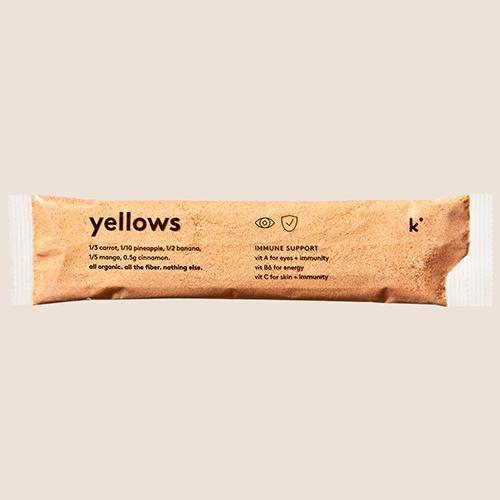Why we don’t use stevia or monk fruit in our products
There’s room for all sorts of sweeteners in this vast nutritional world of ours, but we like for our smoothies to be as naturally sweet as possible – that means fruits and veggies and nothing else.
Nutrition is a nuanced topic, and accordingly here’s our standard acknowledgement that just because we don’t use something in our products, that doesn’t inherently make it evil!
We believe that non-nutritive sweeteners can have their place. They typically don’t contain calories and don’t increase blood glucose levels, which can make them a helpful option for individuals with diabetes.
But ultimately, at kencko we are committed to keeping our fruit- and veggie-filled products free of added refined sugars and non-nutritive alternatives, because we want our products to taste as much like their ingredients as possible, while ensuring that we are delivering all of the nutritious goodness of fruits and vegetables.
But what about plant-based sweeteners?
That we only use organic fruits and veggies in our products is nothing new. That’s a core tenet for us, and a concept that’s central to our mission of making fruits and veggies more accessible for more people.
So since stevia- or monk fruit-derived sweeteners also come from plants, it’s not unreasonable to ask why we don’t use them in our smoothies.
Monk fruit and stevia are both sources of calorie-free sweeteners that get their flavor from compounds called mogrosides and glycosides, respectively. But the monk fruit or stevia you mix into your coffee or use for baking is pretty far removed from the fruit or leaf it started out as.
Without getting too much into the nitty gritty, what both monk fruit and stevia processing have in common with each other is that the end result isn’t really the fruit or leaf anymore – it’s a distillation, or an extract, or an “essence,” even.
That’s not the type of ingredient we use in our products. The fruits or veggies you’ll find in kencko smoothies are minimally processed: they’re simply flash frozen, slow dried, and then ground into a powder – a process that doesn’t fundamentally change their nutritional profile.
Sweet is relative
Additionally, both stevia and monk fruit are considered “high-intensity” sweeteners.
We’ve written about the nature of natural sweetness before. And one of the factors at play when learning to truly appreciate the sweetness present in fruits and vegetables is that so many foods we encounter in our daily lives are punched up with added sweeteners that are often substantially sweeter than something already sweet, like table sugar.
Next time you’re at your local coffee shop, for instance, take a look at the non-sugar sweeteners available to add to your drink in those little paper pouches. Any that are made with Aspartame are – gram for gram, in their pure form – 200x sweeter than sugar. Sweeteners made from Saccharine are between 200x and 700x sweeter than sugar. Sucralose? That’s 600x sweeter than sugar.
Just because monk fruit and stevia sweeteners are more natural in origin than some of their aforementioned peers, that doesn’t mean they aren’t also wildly sweet!
Stevia registers at 200x to 400x sweeter than sugar, with monk fruit up to 250x sweeter.
We think fruits and veggies are sweet enough
At the end of the day, we just don’t feel like we need to make our smoothies hundreds of times sweeter. We get a real kick out of biting into a cool, crisp apple, or snacking on some diced mango, or adding some fresh raspberries to yogurt. Because these snacks all taste great! And we want everyone to be able to appreciate that sort of simple pleasure.
And the fewer added sweeteners – of any variety – you consume, the better conditioned your taste buds become at picking up on the subtler flavors and natural sweetness of fruits and veggies.
Sugar isn’t the enemy
Plus, we simply have a better scientific understanding of naturally occurring sugars, and their impacts on our bodies and health.
Though both are generally recognized as safe, neither stevia or monk fruit sweeteners have been approved as food additives by the FDA. There’s still more research required before we fully understand any potentially adverse side effects of frequent and high-dosage consumption.
Meanwhile, the World Health Organization issued a statement in May 2023 advising people not to use non-sugar sweeteners. So there’s even more reason to develop a healthy appreciation for the natural sweetness found in so many of our favorite fruits and veggies.
there's more good content where that came from
